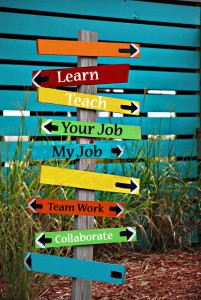I am sitting here at my desk thinking about how excited I am about getting the opportunity to write for Counselling Connect. It is something I have wanted to do for some time and only now am I finding the time to get to it. Perhaps finding the time is not the correct term to use. I think I am now allowing myself to make the time to do it. As a school guidance counsellor in a grade 7 to 9 middle school with just under 600 students, time is not something that I have complete control over. Yes I have a planner with scheduled meetings with parents, students and staff, and I do my best to keep to that schedule. However, when a parent walks into my office with their teenage child looking to register for school, or I receive a phone call from DCS regarding a student I counsel, the next hour of  my schedule is suddenly pushed up. What happens instead is a long process of filling out paperwork, looking for legal documentation and finding appropriate educational programs for the student so they can start as soon as possible. This is not something that can wait a few days. The longer a student is out of school, the more education they are missing. The point I am trying to make is that school counsellors often must work on the immediate issues in front of them and this immediacy can create stress and anxiety in the workplace.
my schedule is suddenly pushed up. What happens instead is a long process of filling out paperwork, looking for legal documentation and finding appropriate educational programs for the student so they can start as soon as possible. This is not something that can wait a few days. The longer a student is out of school, the more education they are missing. The point I am trying to make is that school counsellors often must work on the immediate issues in front of them and this immediacy can create stress and anxiety in the workplace.
For years I spent hours of my day preparing for my job, doing my job, and then continuing to do work related duties well after my work day ended. I became tired, and began to dislike the work I was doing. The counselling aspect of my job seemed to take the back burner to the immediate administrative duties. Don’t get me wrong, I loved being a school counsellor, but I no longer felt fulfilled. This changed when I decided to take the active step of taking my scheduled breaks throughout the day and leaving my work in my office. The first time I did that was the beginning of a new journey for me. Suddenly I was able to come to work, do my job and love it again. Yes it is difficult to leave work and not worry about what needs to be done. However, now I am home at a good time, able to make supper and spend time with my family without thinking about the needs of my students. This leaves me plenty of energy to tackle the next day. I now feel less stress and more love for what I do.
So, the point of my very first Counsellor Connect blog is simple:
IF YOU WANT TO LOVE YOUR JOB, MAKE TIME FOR YOURSELF!
*The views expressed by our authors are personal opinions and do not necessarily reflect the views of the CCPA
 Continue reading
Continue reading 





